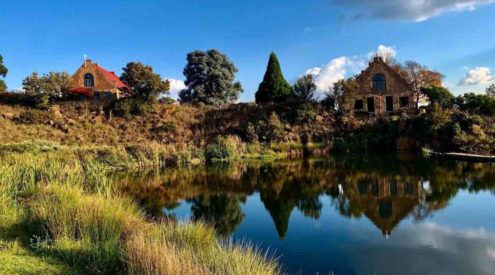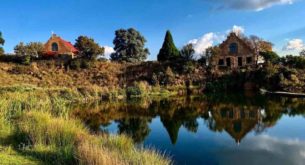More elephants may be introduced into the Knysna forest following the rare sighting of a wild female elephant.
SANParks, the South African National Parks, has confirmed the presence of a female elephant in the Knysna forest and fynbos area under its management. As a result, they have conducted two types of assessments to make evidence-based decisions for managing the elephant/s in the future.
It stated that a targeted survey was conducted as part of the sociological assessments.
The response rate reached 74% of the 500 contacts made. The findings of the study support the introduction of more elephants into the Garden Route elephant range.
The SANParks statement said: ‘Those respondents favouring the re-introduction of elephants in the Knysna forest cited reasons ranging from ecological, cultural and historical values and also cautioned against commercial interest.’
‘Most respondents advised that there must be a cautious management approach that is informed by inputs from elephant specialists, followed by landowners and conservation authorities.’
The ecological studies looked at the elephant’s physiological condition, behaviour in response to human activities, the identification of potential human-wildlife conflict areas, and the reason for the elephant population’s extinction.
These assessments supported the evidence that there was only one female elephant in the forest and confirmed the size of her feeding area.
The different stress hormone levels found in the female elephant’s dung indicated that her hormone system is functioning properly. Her stress hormone levels were low in areas with a low human population density.
‘Camera trap footage showed her to be relaxed while in high human-use areas or events but where she was being followed by humans, the stress hormones in her dung were high.’
‘This aligned with her movement and behavioural patterns that showed avoidance of areas with higher likelihood of human presence and contact.’
‘Both the social and ecological studies support management options that are low-risk, cautious and of minimal-disturbance as well as an acknowledgement that any management option should be informed by experts,’ the statement said.
Article written by Murray Swart for Cape Town ETC.















